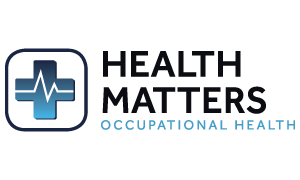
Occupational health is a branch of medicine that is concerned with the relationship and interaction between health and work; namely how an individual’s health affects their ability to work and how the work affects their health.
Effects of health on work
- Fitness for Task: assessing an individual’s fitness for the role they will be performing. This may be to standards that are set by the employer, an industry group or in legislation;
- Absence management: assessing those who have been absent from work and giving advice to facilitate a return to work;
- Rehabilitation: advising on those who have a medical condition that restricts them in the performance of their duties. This advice is targeted at helping return to full duties as quickly as possible or the identification of adjustments to the work that allows for the return to as much of the role as is possible.
Effects of work on health
- Early identification of work processes or design issues that are known to cause ill health and working at an early stage to design these out of the work before it causes a health problem;
- Monitoring of the working environment to ensure that workers are not exposed to hazards;
- Health surveillance of workers working in potentially hazardous environments to allow early identification of possible health issues;
- Advice on control measures to prevent exposures, e.g. elimination, modification/substitution, engineering controls, work adaptation, Personal Protective Equipment (PPE) and immunisations.
Traditionally this has been the full extent of Occupational health provision but more organisations are recognising the benefits of investing in staff treatment services to facilitate rapid return to work. Wellbeing provision is also now seen by many organisations as important and many are signing up to the Government Public Health Responsibility Deal pledges and using their occupational health service to deliver on these pledges. (https://responsibilitydeal.dh.gov.uk/)
Wider health issues
- Treatment services to allow rapid return to work, eg: physiotherapy and counselling services;
- Health promotion and wellbeing services: raising awareness of the importance, and enabling the implementation, of healthy lifestyle choices;
What occupational health means for employers and employees
There are many potential benefits of workplace health programmes, as summarised below.
Benefits for employers
- Lower health care and disability costs
- Work timeliness
- Enhanced employee productivity
- Reduced employee absenteeism
- Decreased rates of illness and injuries
- Enhanced corporate image
- Improved employee morale
- Improved employee recruitment and retention
- Increased organisational commitment and creation of a culture of health
- Lower compensation claims
- Decreased sick pay costs
Benefits for employees
- Increased wellbeing, self-image, and self-esteem
- Improved coping skills with stress or other factors affecting health
- Improved health status
- Lower costs for acute health issues
- No salary / income loss from illness or disability
- Increased access to health promotion resources and social support
- Improved job satisfaction
- Safer and more supportive work environment
How do you determine the occupational health needs of your organisation?
The level and type of Occupational health service required will vary according the size and risks of the organisation. The HSE produces useful guidance to help you work out what you need.
You can contact COHPA to help you contact OH providers to talk over your requirements and SEQOHS accreditation provides reassurance that your provider of choice is working to audited standards of practice.
Dr Lucy Wright CMO OHAssist on behalf of COHPA


